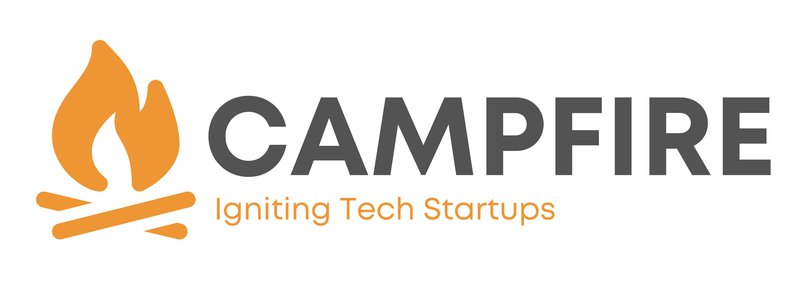
December 7, 2023
Navigating Startup Funding for Your App Development
Several weeks ago we posted some insights about seeking a patent for your software app. Another component of the startup journey is funding that development and business idea. Even if you are a tech savant, much more goes into seeing an idea to fruition than coding and testing. Particularly if your idea can be scaled into a viable business – versus a one-off product – you’ll need staff to be strong in the areas where you are weak, and you’ll need to source funding.
Startup Funding Basics
Flint Hills Group Founder and CEO Dave Cunningham was confronted by some of these challenges when he started FHG and got his business up and running. He also saw them in some of his young customers struggling with these challenges. It’s one of the reasons why he started Campfire, a bootcamp for startups, in collaboration with Groover Labs and other tech mentors. Explaining the ins and outs of startup funding, along with how to pitch to investors and determining investor business models, are among the topics the Campfire participants explore.


As you go through your startup phases, these are typical available funding options:
Pre-Seed
This funding stage typically encompasses getting your product idea to proof-of-concept and prototype phases with perhaps an early hire (or outside contractor) necessary to help get you there. Funding options at this stage include:
- Self-funded – Your own cash, savings, or credit to get your product moving from ideation to proof of concept and prototype. Any co-founders would be expected to add to this initial investment and contribute sweat equity working at low to no cost.
- Friends and family – You may be fortunate to have individuals in your circle who believe in you and are willing to back that belief with funds. You may be able to relinquish some future equity in the company in lieu of repayment, although that is typically reserved for seed funding and beyond. Of course, friends and family can invest at any stage of your company’s life, depending on their financial capabilities and risk tolerance.
- Loans and grants – Your business idea may, at some point during the pre-seed stage, qualify for a grant or loan. One logical place to start is with the Small Business Administration, which has small business loans ranging from $500, to over $5 million. You can also search for grants specific to a problem you’re solving; for example, the National Science Foundation offers grants in several scientific and technical divisions, such as using AI to enhance teaching and learning technologies. Your state may also have a business incentive program that offers grants and loans.
Loans and grants may be suitable during other company phases as well, depending on your needs and the necessary qualifying benchmarks of the lender or grantor.


Seed Rounds
Seed funding is generally the first point that you give up some equity in your company in exchange for funding. Anyone can invest in a seed round but since investments are typically larger than those at the pre-seed stage, it should be investors who are used to and can tolerate risk. It will require a lawyer with experience in creating cap tables and owner agreements.
- Smaller, angel investors – Former or current business executives are generally good options for seed rounds, generally keeping their investment at under a hundred thousand dollars. Angel investors enjoy investing and diversifying their portfolios. Look for Accredited Investors when possible. They understand that they stand a good chance of losing their money on an individual investment but, as Cunningham put it: “These investors want one home run or grand slam and expect to strike out on the rest.”
- Venture Capital firms – Venture capital, or VC, firms are better known for post-seed funding once a company has generated some revenue and its valuation has increased compared to the pre-seed/seed rounds. However, some smaller firms may be willing to come in with a small investment of $1 million or so if the valuation and equity potential is attractive.


Series Rounds
VCs and other investment vehicles will fund your Series rounds to help you reach such milestones as:
- Series A – This stage aims to grow revenue with a focus on development, operations, branding and marketing.
- Series B – Series B funding will be used to continue business growth through expanding your market, additional hires, and maybe even buying complimentary (or competitor) businesses.
- Series C and beyond – These investment dollars fuel large-scale expansion, including into international markets and additional business acquisitions.
Dividing The Pie
A caution worth repeating, according to Cunningham, is that founders need to be mindful that when they receive money (that’s not a grant or loan) they are giving up a chunk of their company. This ownership is laid out in a capitalization (CAP) table, which details ownership percentages, equity dilution, and the value of equity in each investment round for founders, investors, and any others, such as employees.
“Some founders will get caught up in accepting money from as many people as possible, so the CAP table gets complicated,” Cunningham said. “The founder’s ownership gets diluted and with each round, the previous investors’ ownership gets diluted, so your revenue had better increase.”
One mechanism for not cutting the pie pieces so small is the right of first refusal: If a founder asks for additional funds down the line, they’ll ask the original investor first so that the percentage of company ownership for that investor doesn’t diminish.

FHG: A Founder’s Friend
Of course, the “pie” can’t be served until you get an investor to listen and understand how to pique their interest. Stay tuned to our blog for additional information on what investors look for. Meanwhile, one valuable partnership you can invest in as part of your startup journey is with Flint Hills Group. Our focus on customer success means we offer each customer not just our software development expertise, but our business proficiency and experience. Whether it’s building out your prototype, helping you with your investor pitch, or advice beyond the funding stage, we can help business founders deliver on their dreams – and on their promises.
Karen S. Johnson
Technology Enthusiast
Karen S. Johnson is a freelance writer, public relations consultant and technology enthusiast who traded farm life in North Dakota for a smaller-scale farm outside of Waco, Texas. When not writing articles and crafting messaging strategies for technology clients, Karen can usually be found jumping her horses around her 20-acre farm or watching the spectacular sunsets with her husband, dogs and cats.




Karen S Johnson
Technology Enthusiast
Karen S. Johnson is a freelance writer, public relations consultant and technology enthusiast who traded farm life in North Dakota for a smaller-scale farm outside of Waco, Texas. When not writing articles and crafting messaging strategies for technology clients, Karen can usually be found jumping her horses around her 20-acre farm or watching the spectacular sunsets with her husband, dogs and cats.

